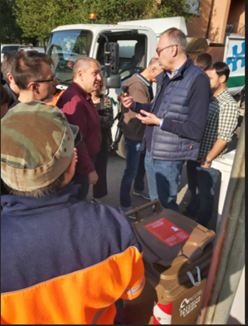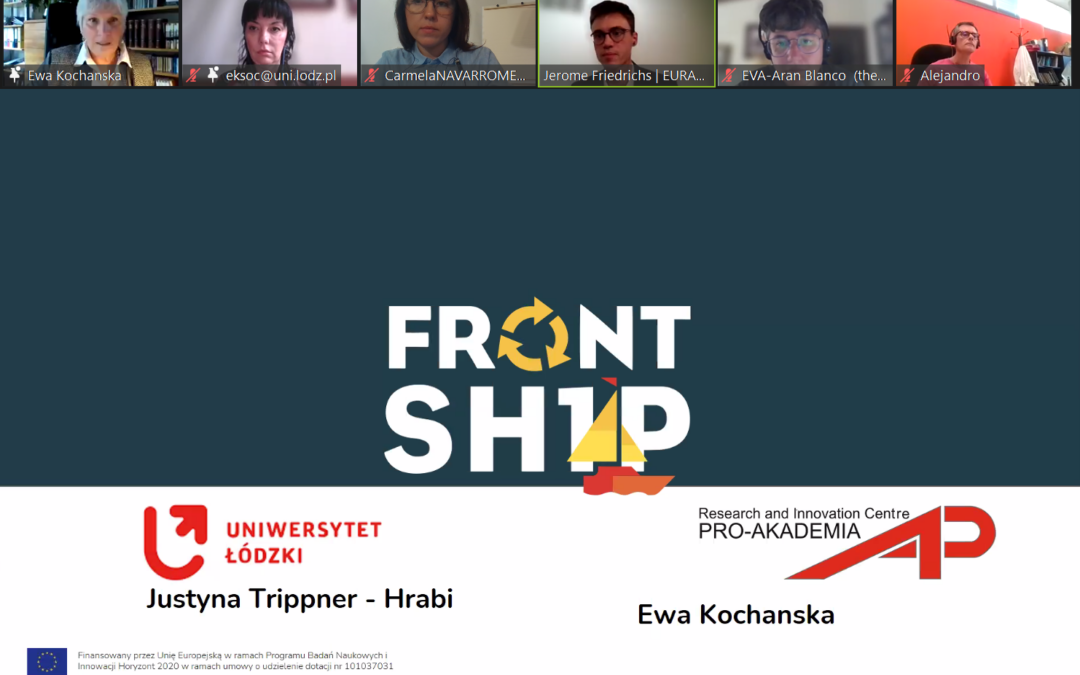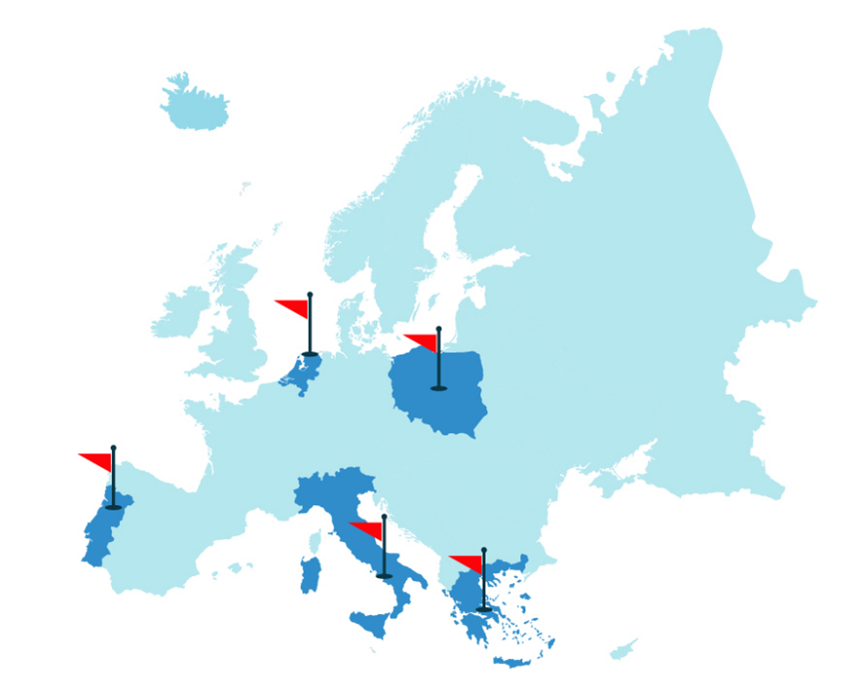Authors: Daniele Turati, Pieter Ravaglia
The FRONTSH1P project, funded by the European research and innovation program Horizon 2020, aims at supporting decarbonisation and territorial regeneration processes for the green transition of the Polish Łódzkie region. Through the implementation of highly replicable circular systemic models, FRONTSH1P will develop and apply four Circular Systemic Solutions (CSS) among which also one dedicated to the Food and Feed sector coordinated by Novamont (CSS2). The CSSs development foresees the implementation of several technical and social activities in the Łódzkie region dealing with policy improvements, innovative businesses, citizens’ engagement and urban/regional planning, where the development of long-term planning (2050) and the update from the Circular Economy Action Plan (CEAP) will be committed. The different systemic solutions are strictly interconnected thanks to the work carried out by Proakademia in WP2. The main goal of this work package is to develop the methodology and toolkits to support the regional transition to a circular economy, taking into account various types of local sources of waste as raw materials for reprocessing, reusing, recycling and upcycling. A Circular Governance Model will be defined including the possibility to launch a special purpose vehicle to engage all actors and act as an umbrella organisation to operate the regional cluster.
CSS2 is strictly interconnected with the other CSSs, and has key innovations in:
- CO2 assisted pre-treatment of agro-industrial waste combined with biotechnological treatments for the obtaining of Free Fatty Acids (FFAs) as a component for foaming biomaterials;
- The establishment of innovative oil crops cultivations (i.e. sunflower, milk thistle) in marginal and abandoned agricultural areas to obtain vegetable oils that can be transformed into biodegradable biolubricants formulations, bio-oils for insulating materials and locally available animal feed supplements;
- The production of biobased building blocks (diols and dicarboxylic acids) from second generation feedstock (from regional agro-industrial waste rich in sugars) for the formulation of new compostable bioplastics (compostable bags for OFMSW collection).
Today, the necessity to manage biodegradable waste which, due to its characteristics and properties, is a burdensome material that is difficult to process, constitutes a significant environmental, technical, economic, and legal challenge. On the other hand, biodegradable waste processing offers not only environmental (no environmental pollution) but also financial profits (the possibility to sell processing products: compost as organic fertiliser rich in organic matter and biogas).
The European Union has changed its approach to biodegradable waste, which is more and more frequently treated as a resource (raw material) for the economy and a valuable product that can be processed and reused for the production of industrial streams and in agriculture. New regulations can and should further facilitate an effective approach to biodegradable waste valorisation. To promote the good organic waste collection, in the FRONTSH1P project citizen engagement activities will be implemented in collaboration with local authorities. In particular challenging territorial targets are social housing degraded blocks where campaigns to promote Organic Fraction of Municipal Solid Waste (OFMSW) collection and study of possible rewarding schemes can be strategic tools to reduce municipal and family costs, while obtaining high-quality compost for soil regeneration interconnecting urban and rural dimensions.

To further consolidate the collaboration among different European regions and showcase a successful separate collection, composting and energy production system, a visit to the area of Legnano (Lombardy) was organised by Novamont with a delegation of representatives from the Polish project partners involved in the project. In the future months, some activities will be implemented to engage local farmers in co-designing integrated solutions for valorising marginal lands and building up new multipurpose farm models for diversifying their business (especially young farmers) and avoiding land abandonment. The aim will be the recognition and valorisation of the most engaged people and their talents to select ambassadors in the regions to attract other citizens in this innovative transition to a sustainable circular economy model.



